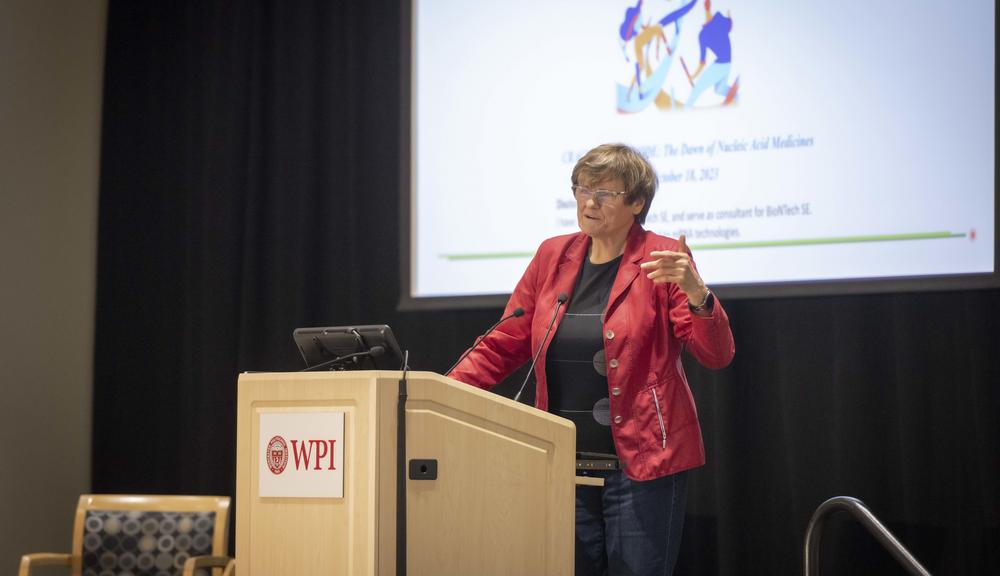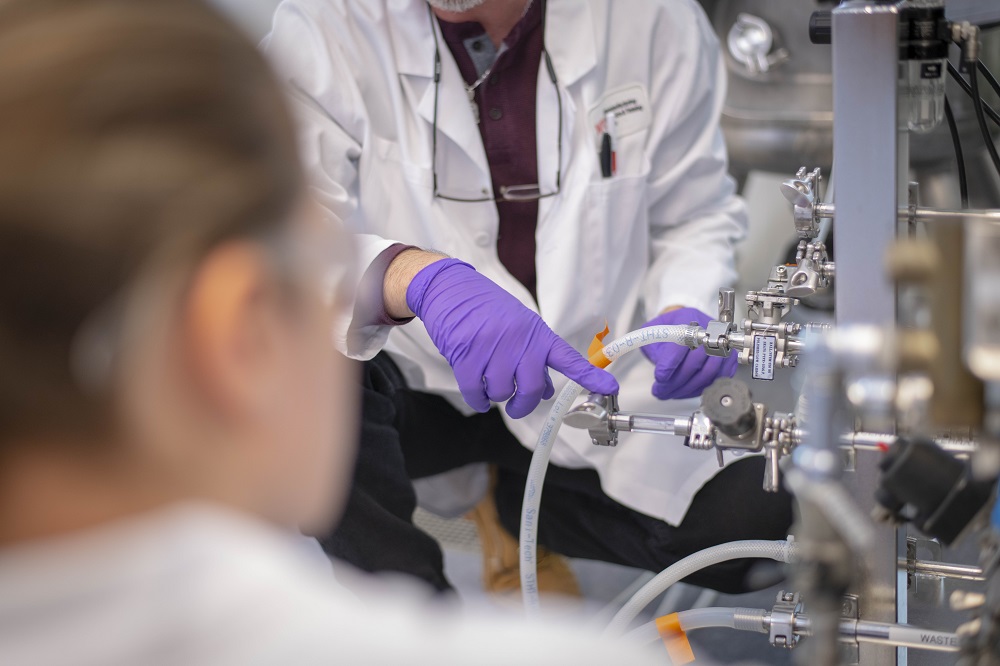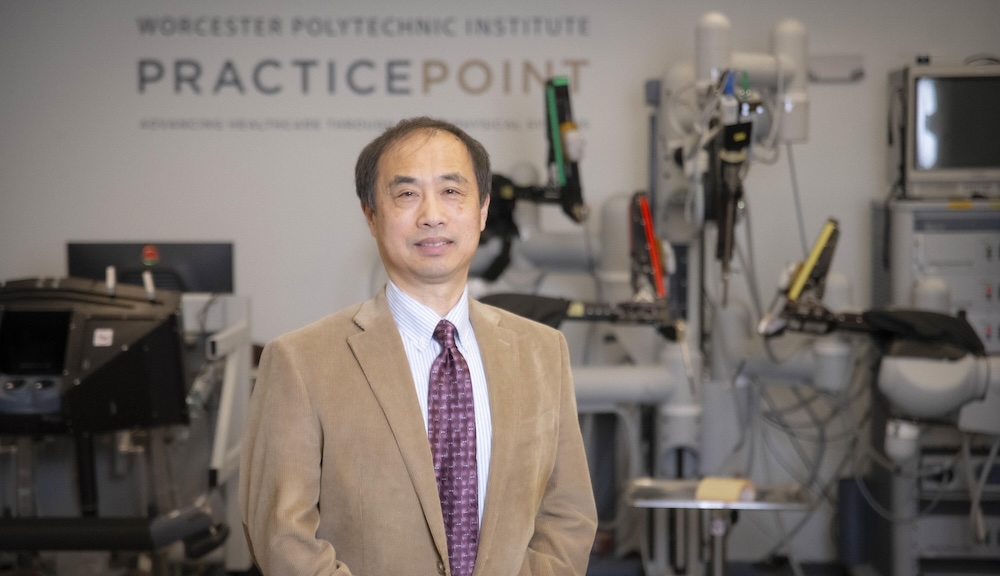Worcester Polytechnic Institute’s (WPI) life sciences programs and new biomanufacturing training center will be featured at this year’s BIO International Convention, the global gathering of the biotechnology industry that begins June 27 in Washington, D.C.
Dr. Craig Mello, Nobel Laureate, the Blais University Chair in Molecular Medicine and a Howard Hughes Medical Institute investigator at the University of Massachusetts Medical School, who serves as chairman of the WPI Life Sciences Advisory Board, will speak at a special reception at BIO on June 29 sponsored by WPI. The reception is titled "Engineering a Collaborative Model for Biotherapeutics Growth: A Conversation with Craig Mello."
"We are most pleased to present our colleague Dr. Craig Mello at BIO," said WPI President and CEO Dennis Berkey. "Dr. Mello’s call for a new model of collaboration to accelerate scientific discovery and the development of therapies for human diseases is an important message. It is also at the core of WPI’s approach to life sciences research and workforce development."
Mello shared the 2006 Nobel Prize in Medicine or Physiology for the discovery of the gene-silencing phenomenon known as RNA-interference (RNAi). The technology of RNAi has revolutionized the study of genetics and cell biology, and has launched the development of a new class of medicines that may be able to treat previously untreatable diseases. Mello co-founded RXi Pharmaceuticals to develop new therapies based on RNAi technology. RXi is located at WPI’s Gateway Park.
"Today, the work we do must be interdisciplinary and collaborative," Mello said. "The complexity of biologic systems requires intense informatics, engineering and technology development to help us do our science and to translate what we learn in ways that will help people."
BIO International is the largest global event for the biotechnology industry. Last year some 15,000 people from 68 countries attended BIO and more are expected at this year’s four-day event. The centerpiece of WPI’s presence at BIO 2011 is the university’s new Biomanufacturing Education and Training Center (BETC), which is now under construction and will be ready for tours when BIO International moves to Boston in the summer of 2012.
Funded in part by a grant from the Massachusetts Life Sciences Center, the BETC will be a fully functional biomanufacturing pilot plant, providing hands-on training and educational opportunities for the multilayered workforce needed to produce medicines and research compounds using engineered living cells. It is already attracting attention from biotech leaders, with Abbott Laboratories, Bristol-Myers Squibb, and Shire Human Genetic Therapies (HGT) recently signing on as the inaugural corporate partners for the BETC.
"BIO is the leading event for biomanufacturing companies, so we’re looking forward to presenting the BETC and to forming new partnerships that will help companies grow, and help speed new therapies to market," said Stephen Flavin, WPI’s vice president for academic and corporate development. "Research pipelines are filling up with biotherapeutics in various stages of development or clinical trials. Our goal with the BETC is to work collaboratively with the industry and prepare the workforce that is needed to increase the manufacturing capacity for this fast-growing sector."
The BETC will have industry-standard process areas of equipment preparation, buffer and media preparation, fermentation and cell culture, product capture, purification, and analytics. Content-rich programs in the BETC will give graduate and undergraduate students the chance to work on projects that are relevant to the industry, while learning the real-world business practices and workflows of life sciences companies. Biomanufacturing companies will use the BETC as a training center for new or existing employees, thereby avoiding the capital and productivity costs typically associated with in-house training programs.
While at BIO, attendees can also learn about WPI’s growing life sciences education and research programs. "Over the past seven years WPI has invested more than $100 million in core facilities, laboratories, and the recruitment of outstanding new faculty, both in traditional areas of biology and in important growing fields like tissue regeneration, biophysics, and informatics," said Karen Kashmanian Oates, WPI’s dean of arts and sciences. "We are focused on the convergence of basic and applied research, to help expand our knowledge of biologic systems and to foster innovation aimed at solving important problems."
For more information about the June 29 reception with Dr. Mello, please contact Kim Lamprey at klamprey@wpi.edu or 508-831 6024.


